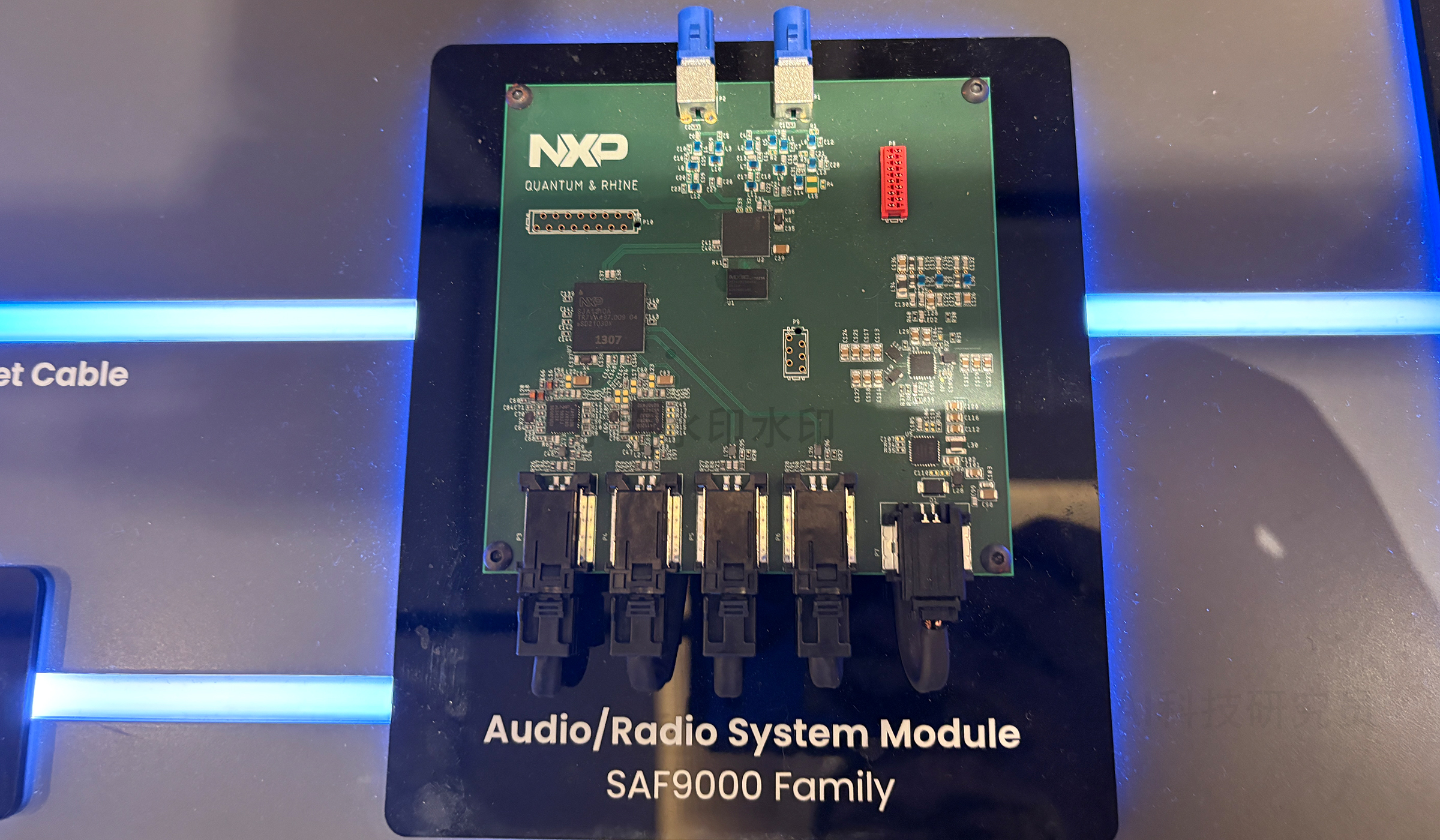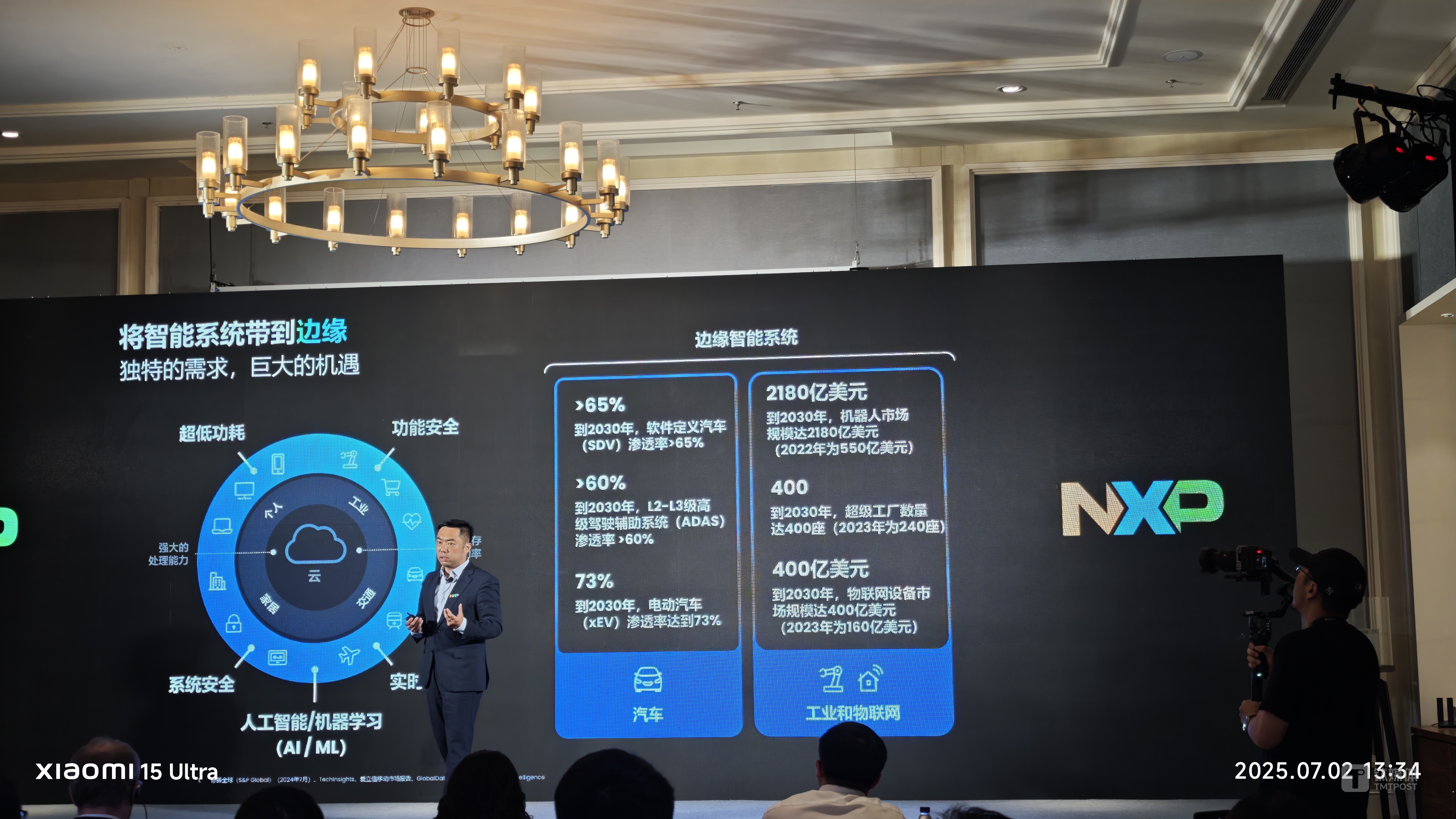
AsianFin -- NXP Semiconductors is deepening its commitment to China, its largest single market, as the Dutch automotive chip giant seeks to tap the explosive growth of the country’s electric vehicle sector and defend its global leadership in next-generation semiconductors.
During a recent visit to Shanghai, CEO Kurt Sievers and his designated successor Rafael Sotomayor met with Shanghai Mayor Gong Zheng, underscoring the company’s strategic focus on China amid a global realignment of automotive supply chains. “If we can succeed in China, we can succeed globally,” Sievers said, praising Shanghai’s innovation-friendly ecosystem and describing the city as an engine for NXP’s regional growth.
NXP, which has operated in China for nearly four decades and employs more than 6,000 people across 14 cities, is ramping up its localization strategy at a time when Chinese EV giants such as BYD and Xiaomi are expanding aggressively. Despite this, domestic chipmakers currently meet just 10% of China’s automotive semiconductor needs, leaving a vast market opportunity for global suppliers.
Earlier this year, NXP established a dedicated China Business Division to accelerate product development and customer responsiveness. The division is leading the company’s “In China, For China” and “In China, For Global” strategies, aimed at combining NXP’s global innovation capabilities with the agility and cost-efficiency of the Chinese market. According to Li Xiaohe, Executive Vice President of NXP and General Manager of NXP China, the local engineering team has already defined, designed, and developed over 200 products for both domestic and global customers.
China accounted for 36% of NXP’s total global revenue in 2024, the company disclosed in its latest financial report. About half of that revenue came from multinationals re-exporting goods, while the remainder served Chinese-headquartered firms increasingly seeking independent, domestic supply chains. NXP works with a mix of local and international partners to meet this demand, including TSMC’s Nanjing fab for 16nm and 28nm chips, long-term partner SMIC for mature nodes, and Hua Hong for mixed-signal processing. The company’s major backend packaging and assembly plant in Tianjin further strengthens its footprint.

NXP is betting on premium automotive processors to stay ahead of rising competition from domestic players in lower-end markets. At its Automotive Leadership Media Day in Shanghai on July 2, the company unveiled several new chips tailored for the Chinese market and aligned with its AI-at-the-edge strategy. These included the S32K5 series microcontrollers built on 16nm FinFET process technology and embedded MRAM, as well as the BMx7318/7518 lithium battery controller chips designed specifically for China’s high-voltage EV and industrial storage markets.
NXP also introduced the S32R47 radar processor, boasting double the performance of its predecessor and equipped with AI and machine learning capabilities for enhanced object classification and autonomous driving. Jens Hinrichsen, Executive Vice President and General Manager of NXP’s automotive embedded systems division, highlighted the unique demands of the Chinese market, including shorter development cycles, cost sensitivity, and rising expectations for AI and safety integration.

The chipmaker is forging deeper partnerships with major Chinese automakers to expand its influence. It announced a new joint innovation lab with Geely Auto Research Institute, extended its cooperation with Deepal Auto, and broadened its strategic alliance with Great Wall Motors. NXP’s S32K388 processor will also be mass-produced in Leapmotor vehicles, integrating cockpit, ADAS, and body domain control.
With China accounting for 70% of global EV production and 76% of battery output, NXP views the country as a critical innovation hub. Li emphasized the importance of building broader ecosystem alliances with OEMs, Tier 1 suppliers, and emerging industries such as robotics and low-altitude economy platforms. “We want to bring some of the world’s latest technologies into mass production in China first,” he said.
NXP’s intensified focus mirrors a broader shift among global tech firms. Schneider Electric recently announced a new localization innovation center in Beijing, while NVIDIA CEO Jensen Huang reaffirmed the company’s long-term commitment to the Chinese market during a visit last week.
Economists and industry experts say China is no longer just a vital supply chain node, but a testbed for advanced technologies. At the World Economic Forum’s Summer Davos in Dalian, Beijing Normal University professor Wan Zhe noted that multinational companies are increasingly drawn to China’s innovation potential in areas like AI and biomedicine. Oliver Wyman partner Benjamin Cavender called doing business in China “a necessity, not an option.”

Looking ahead, China’s dominance in the EV, robotics, and IoT markets is expected to deepen. By 2030, the penetration rate of software-defined vehicles could exceed 65%, L2-L3 ADAS adoption may surpass 60%, and EVs could account for 73% of new car sales. Meanwhile, the robotics market is projected to grow to $218 billion, and IoT devices are expected to more than double to $40 billion.
Li said NXP will continue to invest in edge AI, next-gen communications, and renewable energy technologies to help Chinese manufacturers drive productivity growth and shift toward more innovation-driven models. “The most important thing is building new quality productivity,” he said. “That’s where we want to contribute.”
更多精彩内容,关注钛媒体微信号(ID:taimeiti),或者下载钛媒体App

